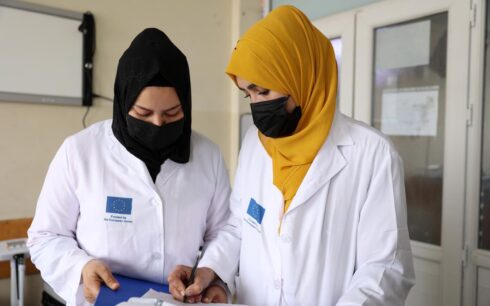KABUL, Afghanistan — Faced with an education ban imposed by the Taliban, a growing number of Afghan female students say they are being forced to consider leaving the country in pursuit of academic opportunities and a more secure future.
Many of these young women describe migration as a painful but necessary choice, preferring the hardships of resettlement over being confined to their homes. Their pleas for an education come as the world marks the International Week of Science and Peace, observed annually from November 9 to 15. The United Nations first celebrated the week in 1986 as part of the International Year of Peace.
Mahtab, a student from Daikundi province, shared her story of perseverance and frustration. After years of studying to pass the university entrance exam, she was admitted to Kabul University’s Faculty of Law and Political Science. But before she could begin her higher education, the Taliban banned university studies for women.
“I finished school in Daikundi and, after much struggle, was accepted to study law at Kabul University,” Mahtab said. “When the Taliban came, we were banned from attending. For two years, I’ve waited for universities to reopen, but they haven’t. The uncertainty about my future is very painful.”
Faced with dwindling hope, Mahtab’s family decided to pool resources to send her abroad. “Migration is hard, but it’s the only way to escape this lack of future and depression and secure a better life for myself,” she said.
Stéphane Dujarric, the Deputy Spokesman for the U.N. Secretary-General, noted that this year’s World Science Day for Peace and Development, observed on Sunday, will focus on “Youth at the Forefront.” The theme aligns with the upcoming International Decade of Sciences for Sustainable Development (2024–2033).
Since their return to power in 2021, the Taliban have banned girls from attending school beyond grade six and prohibited women from universities and most forms of employment. The restrictions have left many young women like Khatira, another student, with few options but to seek education abroad.
“For three years, we have struggled under these bans,” Khatira said. “Given the situation, many of us are forced to consider going abroad for education and work. Even scholarships are being purchased at steep prices just to escape and build a future.”
Nearly 1,150 days have passed since the Taliban first shuttered secondary schools for girls. Despite international pressure, the group has not reversed its decision, leaving Afghan women with increasingly limited opportunities and a choice between uncertainty at home or difficult paths abroad.





